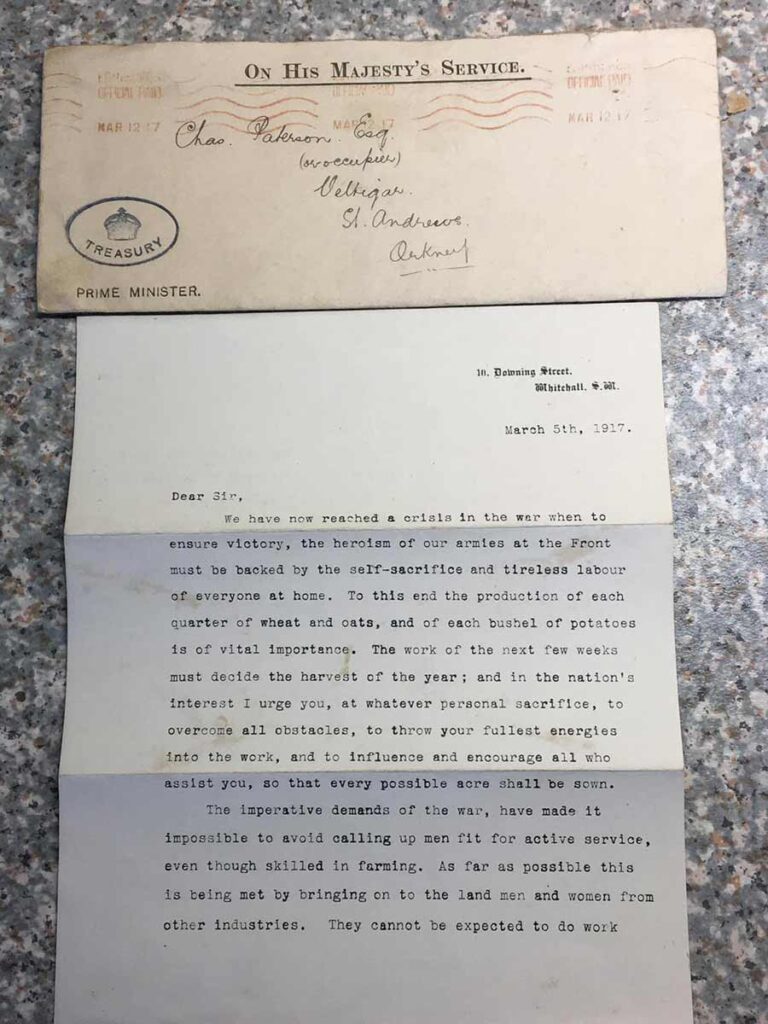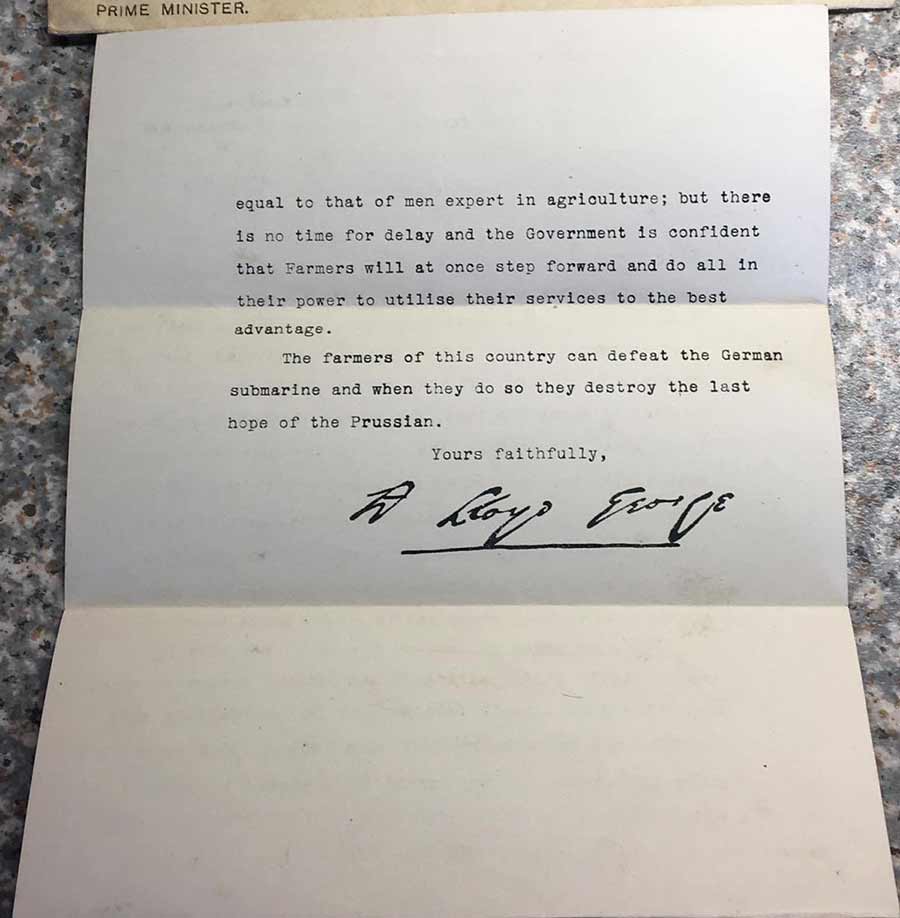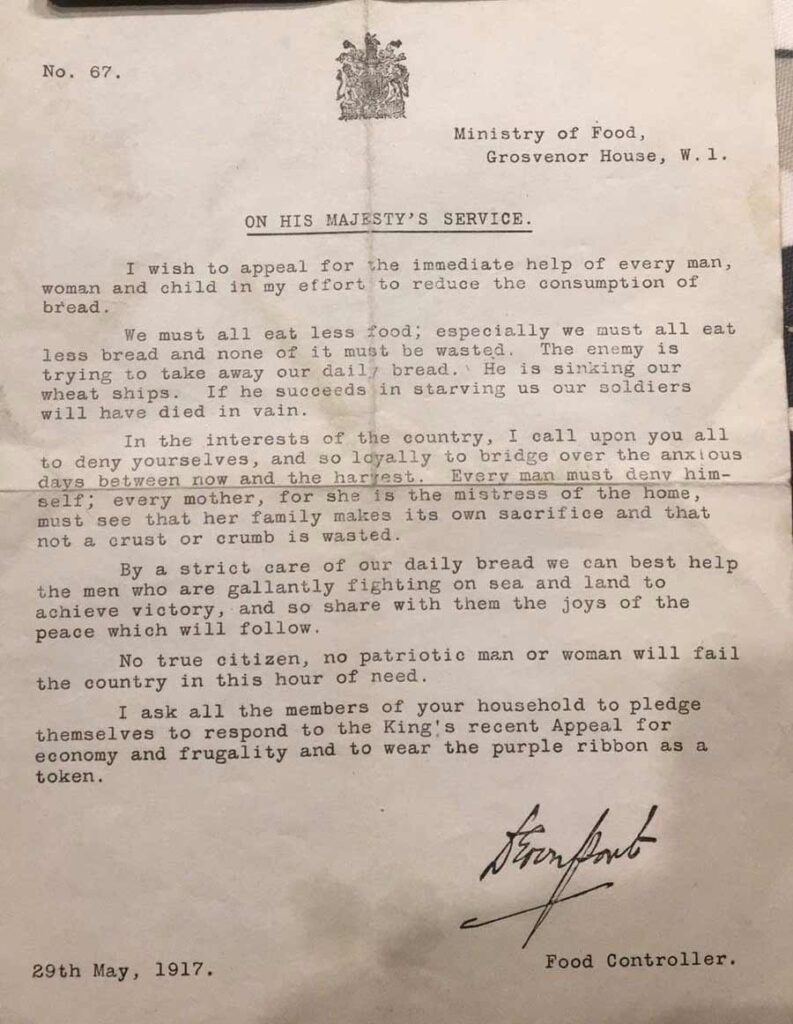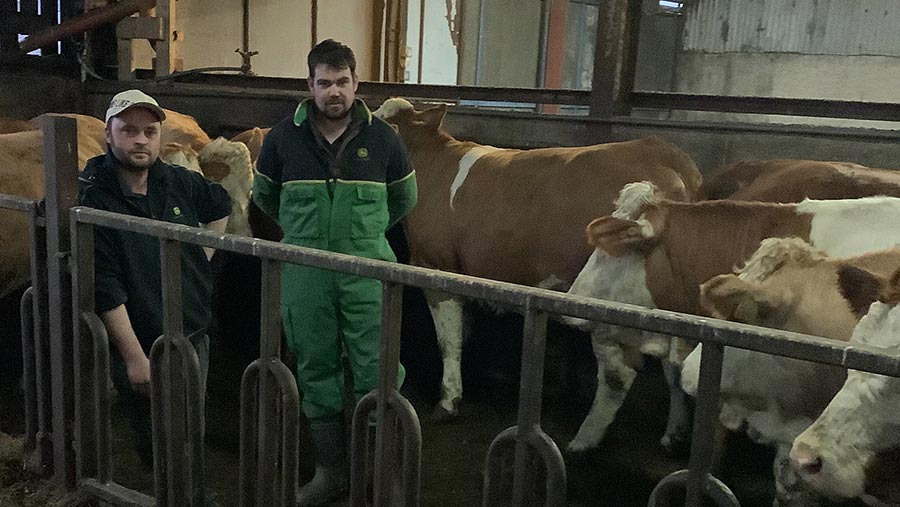Forgotten wartime letters show value of food security
An Orkney Islands farmer says the UK government must learn valuable lessons from the past and focus resources on domestic food security.
Beef and sheep farmer Douglas Paterson, 29, said the discovery of two letters dating from the First World War in a derelict house on his farm gave a stark reminder that food is essential to national security.
Both letters were addressed to his great-grandfather, Charles Paterson, and sent to Veltigar Farm, Tankerness, Orkney.
See also: NFU Conference 2023: ‘No join-up’ on food security across government
The first, signed by the then prime minister, David Lloyd George, on 5 March 1917, encourages farmers to throw their “fullest energies into the work” during spring planting “so that every possible acre shall be sown”.
The letter says “it was impossible to avoid calling up men fit for active service”, but as far as possible, “this is being met by bringing on to the land men and women from other industries”.

© Douglas Paterson

© Douglas Paterson
The second letter, sent by the Ministry of Food on 29 May 1917, appeals to every household member to “make sacrifices” and reduce daily consumption of bread so “we can best help the men who are gallantly fighting on land and sea to achieve victory”.

© Douglas Paterson
The formation of the Women’s Land Army in 1917, to fill vital roles on farms left vacant as men were sent to the trenches to fight; a Ploughing Up campaign which ramped up domestic food production; and a voluntary rationing campaign helped the country avoid being starved into submission.

Douglas Paterson, right, with farmworker Callum Orr © Douglas Paterson
“There will be serious repercussions on the global food market, and if the food isn’t there to get, we’re done for. The government must take note: if there are no farmers, there is no food. And if there is no food, we can’t survive.”
